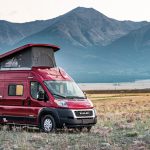Show organizers for the Outdoor Retailer (OR) show announced last week that they agreed to extend its contract with Salt Lake City through Summer 2018.
The decision to remain in Salt Lake wasn’t a surprise to the industry although the two-year extension was shorter than some expected. The short stay leaves room to address some stubborn challenges with the show, particularly limited hotel space in the Salt Lake City area but also some anxieties around Utah's public lands policies.
In 2014, the show was similarly re-upped for only a two-year extension while organizers explored “longer term solutions” with Salt Lake City and other cities as the size of the event continually taxed resources. The event’s exhibitor base has expanded in its recent years with the show attracting vendors well beyond traditional outdoor categories. SUP, running, surf, skate, cycling, health and fitness, military, lifestyle and yoga/Pilates are among the communities the show now also attracts.
Except for 2002, when Winter Market was staged in Anaheim due to the Olympics, both Winter and Summer Market shows have been in Salt Lake City since 1996. Other cities reportedly in the running to host OR included Chicago, Las Vegas and Orlando.
In an interview with the B.O.S.S. Report, however, Marisa Nicholson, VP and OR show director, said the terms of the agreement were executed based on Emerald Exposition’s standard policy in working with convention center contracts. With few exceptions, contracts are signed to three years.
“We will finish out the current contract through 2016 and have added the additional two to total three years,” said Nicholson. “This agreement is currently in place, but we will continue to work with and gather feedback from exhibitors and specialty retailers as we look to the future of Outdoor Retailer and the needs of our stakeholders.”
To ensure all options and concerns were considered regarding a potential move, OR surveyed more than 6,000 specialty retailer attendees and exhibitors. Over two-thirds, an overwhelming majority, indicated their preference for keeping the show in Salt Lake City. The highest majority of the responses came from specialty retailers, which show organizers considered to be the most critical indicator.
“Our decision was based on a list of identified criteria that best supported the business needs of the outdoor industry convention center size, location, ease of access, travel, etc.,” said Nicholson. “In addition, the snow-filled mountains and beautiful outdoor terrain provide the perfect landscape to highlight the products and brands that make up our industry. The community is welcoming, supportive and makes Salt Lake City feel like home during our week in town. We are pleased to work with the community to continue to make Outdoor Retailer the favored event. We have been thankful for the support and the positive working relationship with the local government, Visit Salt Lake and the hotel community.”
Regarding housing and accommodations challenges surrounding the city, Nicholson asserted that all specialty retailers, reps and media interested in attending Outdoor Retailer will be able to secure accommodations during their required time at the show.
“That said,” she added, “we continue to work with local government and municipalities to increase the number of downtown hotel options, and will continue to support the City of Salt Lake in their efforts to build the convention center hotel. We are confident that it will be built in a matter of time. The convention center hotel is not only good for Outdoor Retailer, but provides the biggest benefit to the City of Salt Lake in their effort to acquire other conventions and expos.”
She also noted that OR has also worked with exhibitors and local hotels to shift those requiring an extended stay to hotels new to the downtown area, allowing the organization to maximize rooms in its block.
“While we understand that the ideal location is in a downtown centered property, OR is providing registrants free shuttles to and from all contracted hotels during the show,” said Nicholson. “Additionally, the light-rail TRAX system provides transportation from the Airport to downtown and outer lying areas of the city including 6 TRAX light-rail stops in the convention district Downtown ‘Free Fare Zone’”
She said Outdoor Industry Association (OIA) is better positioned to comment on the public lands issue. In a statement, OIA officials said they look forward to an ongoing conversation with Salt Lake City and Utah officials.
“For over two decades the Outdoor Retailer show in Salt Lake City has played an important role in the convening and growth of the industry, said Amy Roberts, OIA executive director, in a statement. “Outdoor recreation is an important economic driver in Utah and we look forward to continuing the dialogue with the state of Utah around public lands issues. Additionally, we will support continued efforts to increase hotel accommodations and local infrastructure to ensure the city continues to provide a positive attendee experience especially for specialty retailers.”
The news was a big win for Salt Lake City, which held a press conference at the Salt Palace Convention Center on Monday, August 24 attended by city officials, the Governor’s Office of Economic Development and Visit Salt Lake. Officials from Emerald Expositions and organizers of the annual OR Winter and Summer Markets did not attend the news conference.
The shows, the two largest annual conventions in the state, bring in an estimated $40 million in direct economic impact to Utah each year. It also supports businesses that have relocated to Utah as well as ongoing tourism.
The major challenge remains to be housing and Salt Lake officials continue to work to bring a 700-room to 1,000-room hotel nearby its convention center to support not only the OR show but also other trade shows.
Salt Lake County officials announced earlier in August that they had withdrawn from a preliminary plan with Omni to develop a convention headquarters hotel because of a lack of agreement over financial terms. At the press conference, Salt Lake County Mayor Ben McAdams vowed to find a new development partner with the aim toward negotiating an agreement by the first quarter of next year.
McAdams said in a statement, “Soon we will be ‘on the street’ with a new bid request for a headquarter hotel, including public meeting space as well as room accommodations adjacent to the Salt Palace. I believe we will find a great private sector partner and that everyone – Outdoor Retailer attendees, businesses, and Utah residents – will benefit.”
While favoring the location, industry execs likewise acknowledged the housing shortage.
“I think overall SLC is a great place for the show,” Jennifer Mull, Backwoods CEO, told the B.O.S.S. Report. “It is proximate to great places to recreate and the city has been generally responsive to our industry show needs in the past. That said, housing is particularly challenging and definitely needs to be addressed in a meaningful way. Cost, location and availability of rooms are obviously crucial components of the equation and can definitely make or break the decision for someone to attend or not, and for how many days. With so many options available today as it relates to retailers ordering product, any obstacles effecting attendance at the show can matter significantly.”
“When I was on the OIA board, we looked hard at alternatives for Salt Lake City and the truth is that there are no better venues for the show,” Darren Bush, owner of Rutabaga Paddlesports in Madison, WI, told B.O.S.S. “Denver is too small, Anaheim is a logistic nightmare, Orlando is huge and horrible in the summer, and Vegas is, well, Vegas. Salt Lake City is the best place for this show, I feel.”
He added, “With Uber, no one can cry about taxis anymore. So that problem is gone. Trax makes airport transportation a non-issue. Housing is a problem, of course, but Airbnb and more people renting condos and apartments, plus a new hotel (hopefully), might ease the strain.”
Bush also believes the industry may be a “bit spoiled on housing.” At ISPO-Shanghai, Rutabaga Paddlesports’ hotel accommodation was a ten-minute cab ride or fifteen-minute subway ride to the expo center. The PaddleExpo in Nürnberg required a 20-minute ride on a train, and ISPO-Munich required similar conditions. Bush added, “Very few hotels are near the venue in most places. The Salt Palace is an anomaly that way.”
Dave Nacke, VP of merchandising, NBS, said his organization was pleased to see OR recommitting to staying in Salt Lake City.
“We hope that Emerald Expo and the City of Salt Lake can use this extension window to resolve the infrastructure concerns and make SLC a permanent home for the show,” Nacke told the B.O.S.S. Report. “Salt Lake City’s ability to host an industry founded in the mountains and on the water creates a great atmosphere for our industry’s trade event. The show still faces some challenges in getting retailers from all points of the U.S. to attend as we’ve seen regional rep shows growing in importance. There were fewer issues this year with the housing provider, but I did hear of a store who was bringing four buyers and they had to not attend as their room reservations were cancelled somehow. They called our office four days in advance in a panic but we couldn’t help.”
“It doesn’t really bother me,” said Mike Massey, owner of Massey's Outfitters, which operates five stores in the New Orleans, of the show's location, in an interview with the B.O.S.S. Report. “I’m on auto-pilot to SLC. It’s a good town, but the hotel situation just keeps getting worse. And, it is frustrating to get bumped from a hotel after years of staying there when you follow all of the booking rules.”
Added John Mead, Adventure 16 president, based in San Diego, “I have faith that SLC will step up and at least make the housing issue more palatable short term. If another year goes by and there are no new sizable hotels on the horizon that will be most unfortunate.”
“Outdoor Retailer is key for our buying and marketing initiatives and allows us important face time with companies that we do not get elsewhere,” said Brendan Madigan of Alpenglow Sports, Tahoe City, CA, in the statement from Emerald Expositions. “The show is vital to our efforts to find new, exciting up-and-coming brands that help us differentiate ourselves. Having Outdoor Retailer in Salt Lake is key for our business. The show comes during a very busy time of year, if it were anywhere else we would likely not be able to attend.”
“Our founding friends, fans, and partners, who are our most important relationships at Keen, first met us in Salt Lake City at the Salt Palace,” said Steve Meineke, Keen Footwear president, also in Emerald’s statement. “Keen’s literally grown up there as a brand and we’re proud of the contributions we’ve been able to make to help grow this amazing industry right in Salt Lake City.”
Said Scott Beck, president and CEO, of Visit Salt Lake. “Visit Salt Lake will continue our work to guarantee that all attendees have a positive experience at the Outdoor Retailer Markets, including ensuring all can secure accommodations during their time in Salt Lake and access amenities like the light-rail transit system that provides transportation from the airport and throughout the city, much of it in the convention district’s ‘free fare zone.’”
Brad Peterson, executive director, Utah Office of Outdoor Recreation, said that after nearly 20-years in Salt Lake City, citizens, local business owners and elected officials “feel a deep sense of responsibility to deliver exceptional experiences. Those experiences are rooted in Utah's unique and accessible recreational assets.”
Peterson added, “Together we have developed a trusting and collaborative relationship that fosters a long-term commitment to the Show's continued success. And in return, the Outdoor Retailer show has had a profoundly positive effect on our booming recreation economy, and understanding of the overall importance of our expansive public lands. The State of Utah and Salt Lake are excited about the future of the Show.”
The Salt Lake Tribune said the decision to stay in Salt Lake City had little do with concern over Utah's public land policies, where Governor Gary Herbert and many legislators are supporting a transfer of federal lands to state management.
Peter Metcalf, president and CEO, Black Diamond, based in Salt Lake City, and an outspoken critic of Utah’s land policies, told the newspaper that the state can still be used as a platform to challenge the movement to takeover federal lands being explored by other states as well. He said, “This is bad policy for Americans and bad policy for Utahns.”














